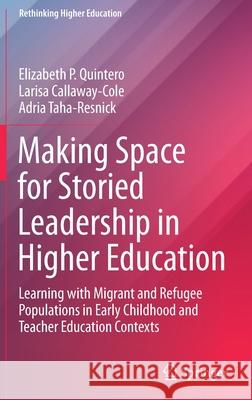Making Space for Storied Leadership in Higher Education: Learning with Migrant and Refugee Populations in Early Childhood and Teacher Education Contex » książka
topmenu
Making Space for Storied Leadership in Higher Education: Learning with Migrant and Refugee Populations in Early Childhood and Teacher Education Contex
ISBN-13: 9789811641565 / Angielski / Twarda / 2021 / 126 str.
Making Space for Storied Leadership in Higher Education: Learning with Migrant and Refugee Populations in Early Childhood and Teacher Education Contex
ISBN-13: 9789811641565 / Angielski / Twarda / 2021 / 126 str.
cena 424,07 zł
(netto: 403,88 VAT: 5%)
Najniższa cena z 30 dni: 421,13 zł
(netto: 403,88 VAT: 5%)
Najniższa cena z 30 dni: 421,13 zł
Termin realizacji zamówienia:
ok. 20 dni roboczych.
ok. 20 dni roboczych.
Darmowa dostawa!
Kategorie:
Kategorie BISAC:
Wydawca:
Springer
Seria wydawnicza:
Język:
Angielski
ISBN-13:
9789811641565
Rok wydania:
2021
Wydanie:
2021
Numer serii:
000912719
Ilość stron:
126
Waga:
0.37 kg
Wymiary:
23.39 x 15.6 x 0.97
Oprawa:
Twarda
Wolumenów:
01
Dodatkowe informacje:
Wydanie ilustrowane











